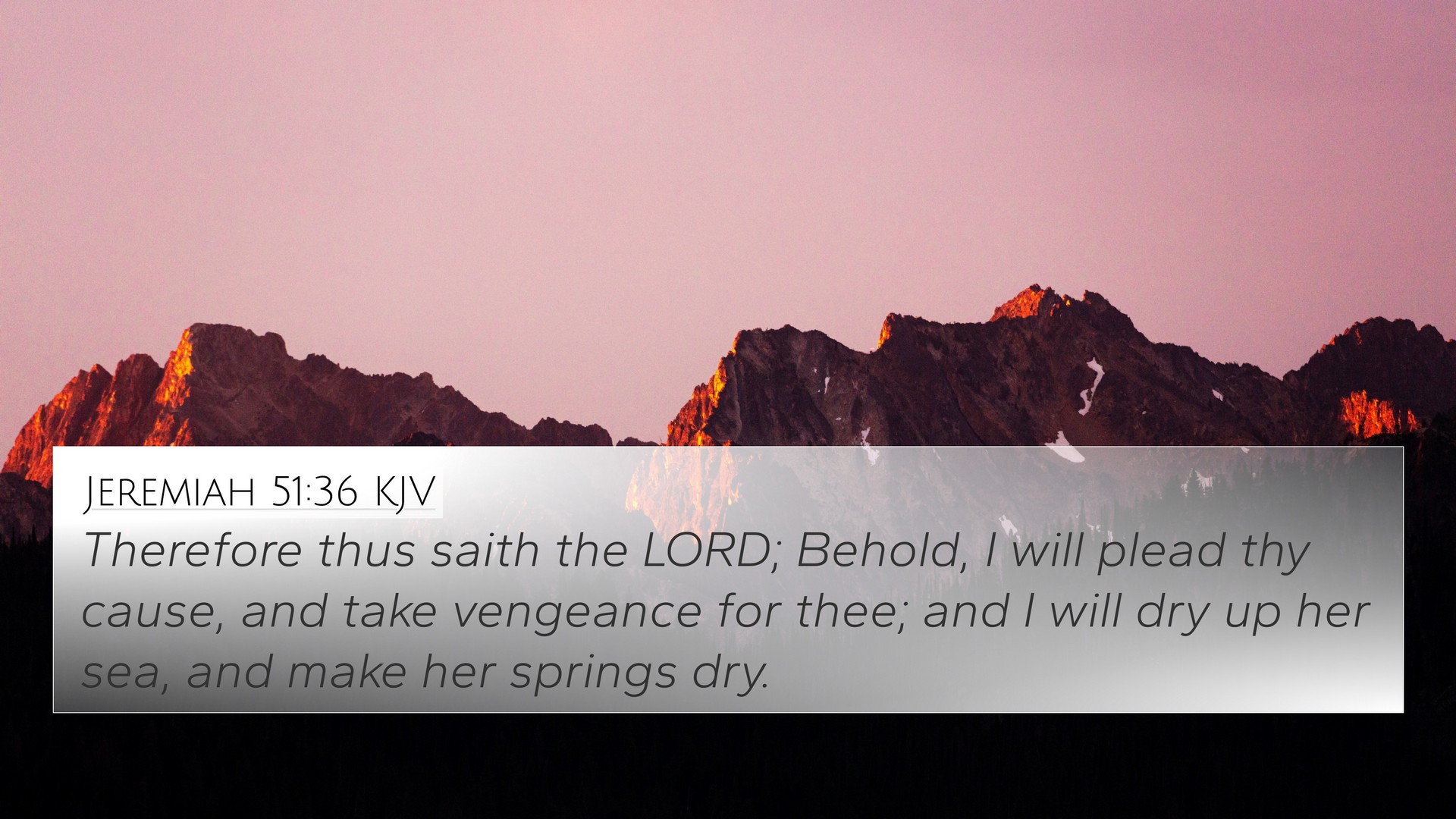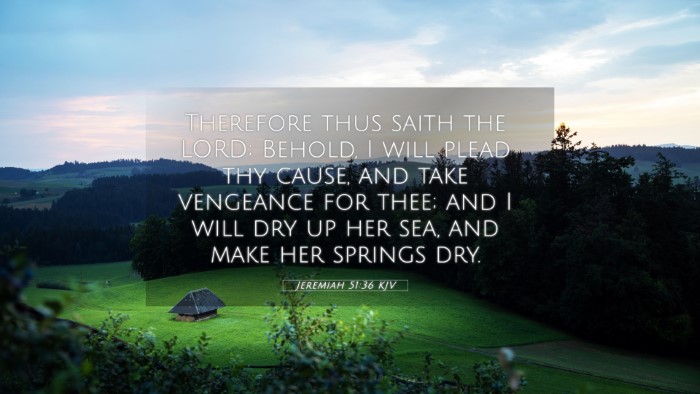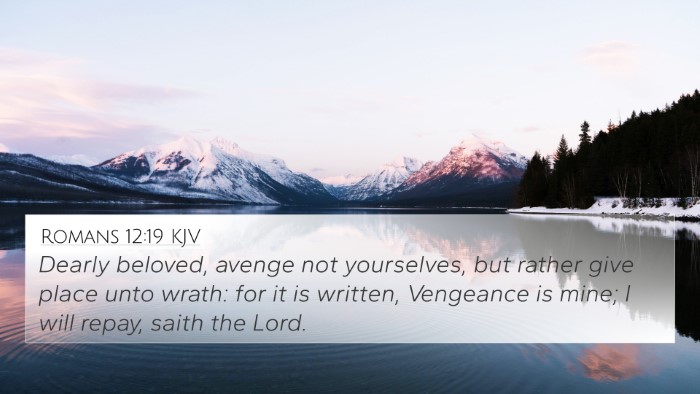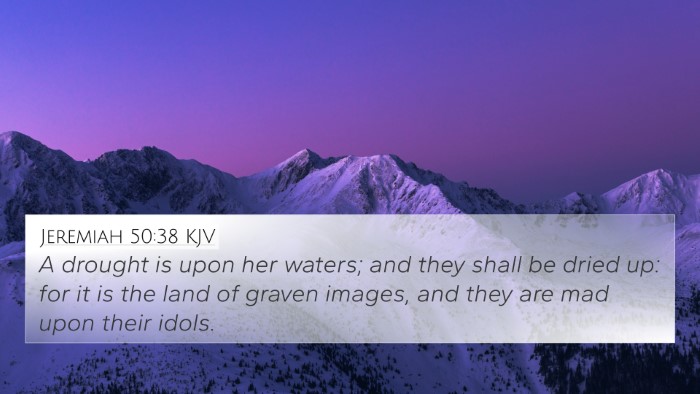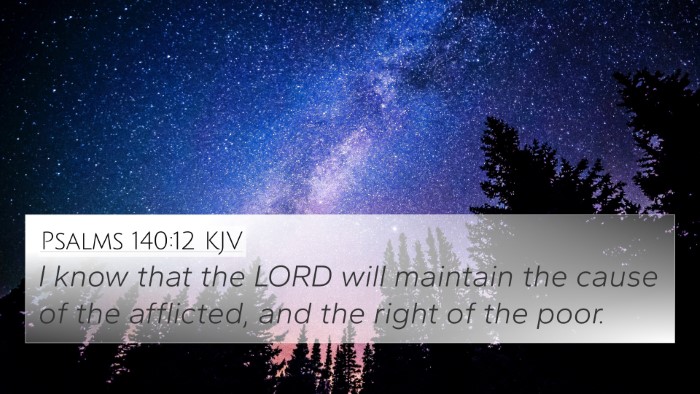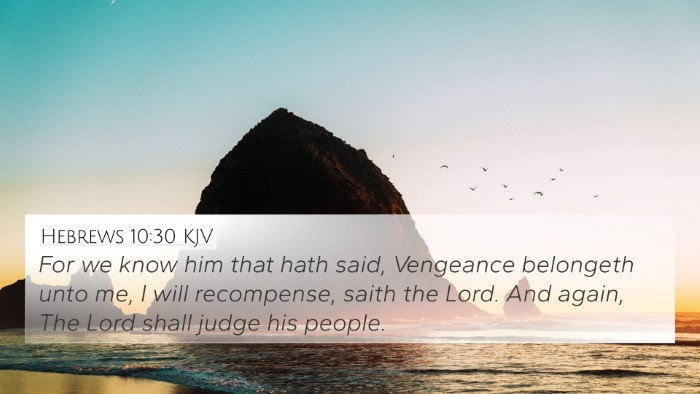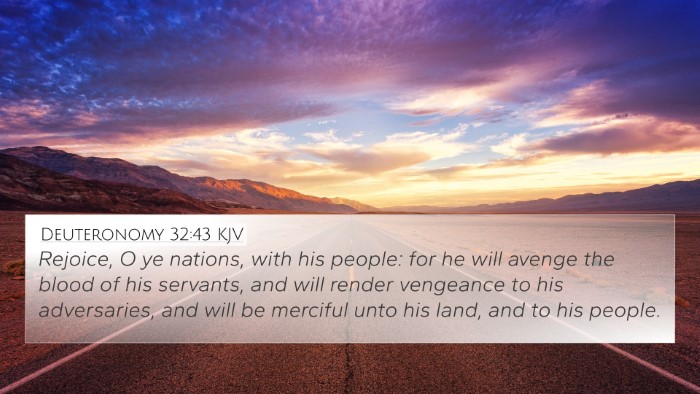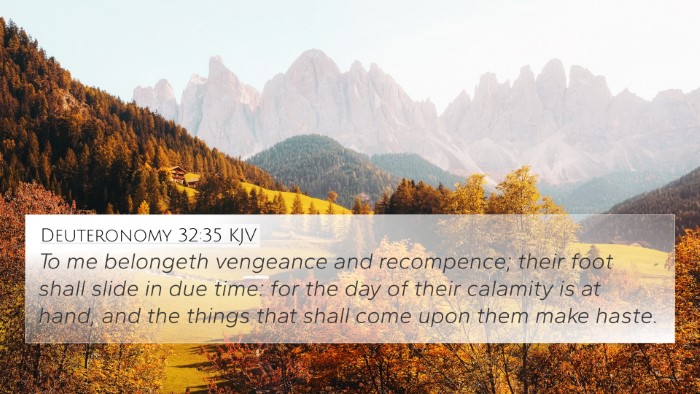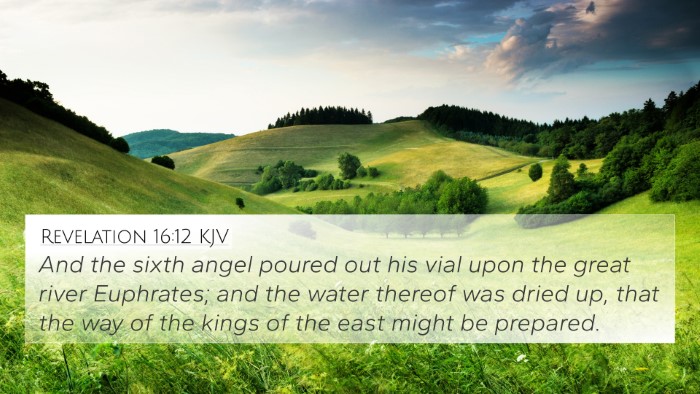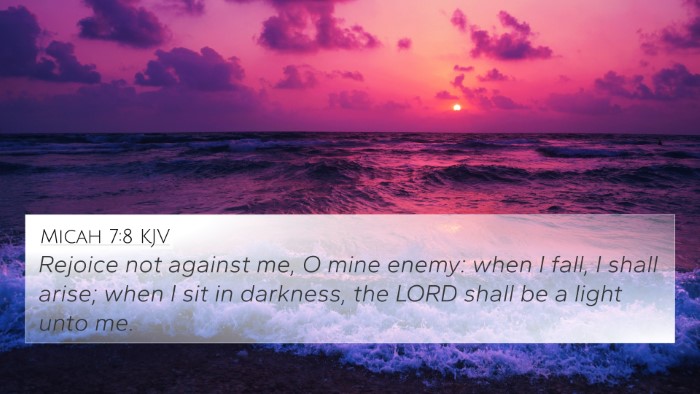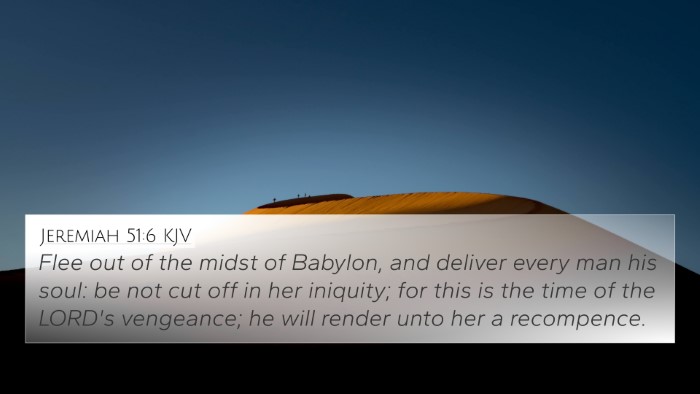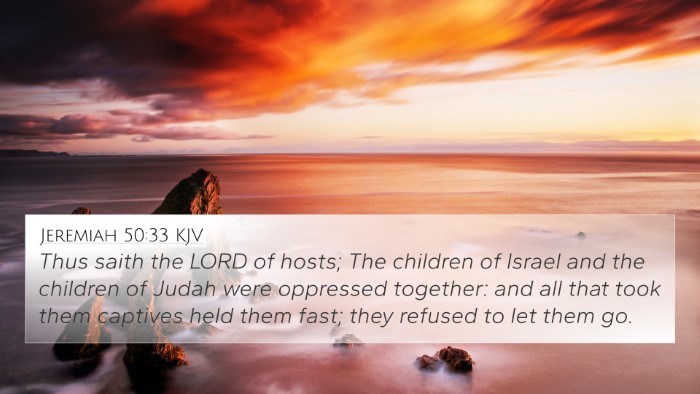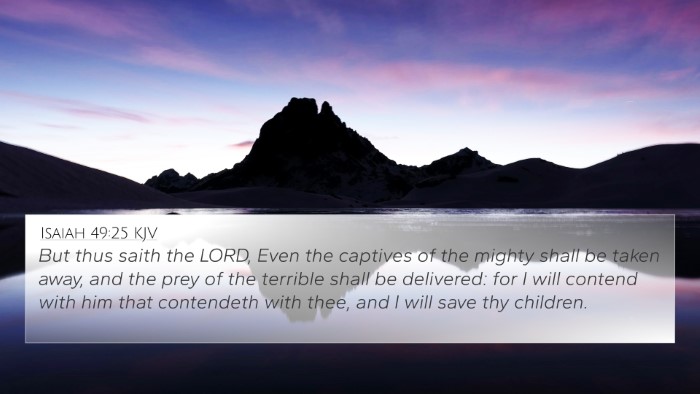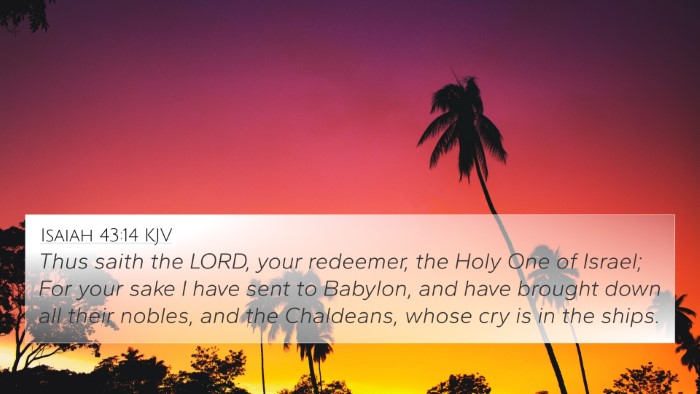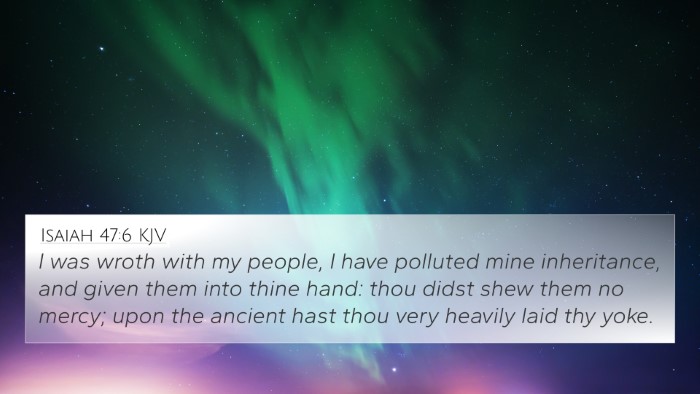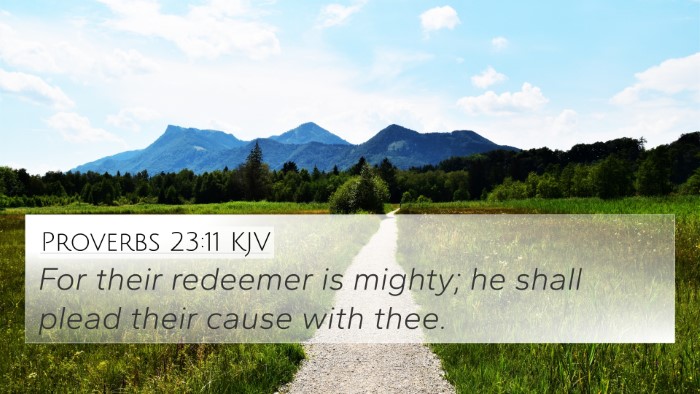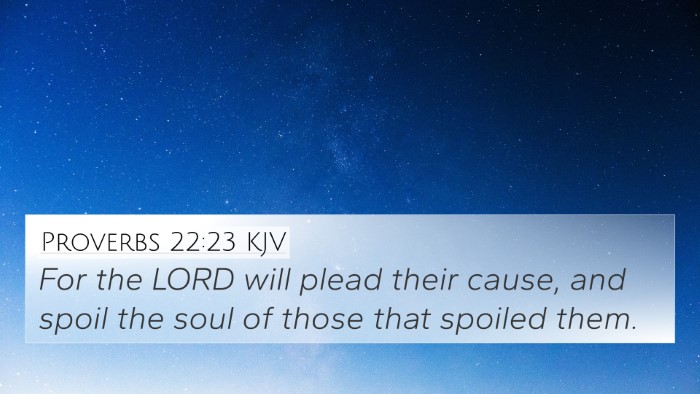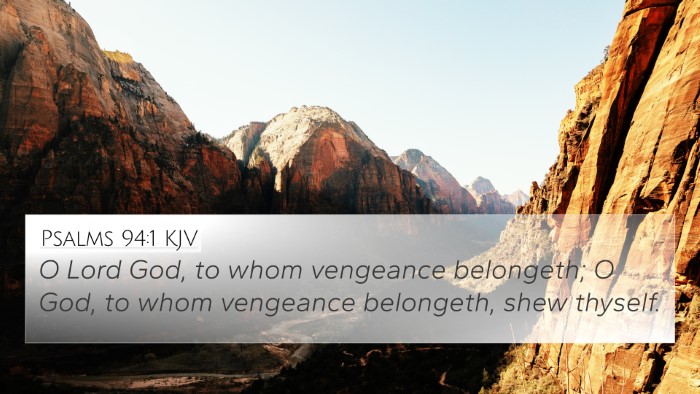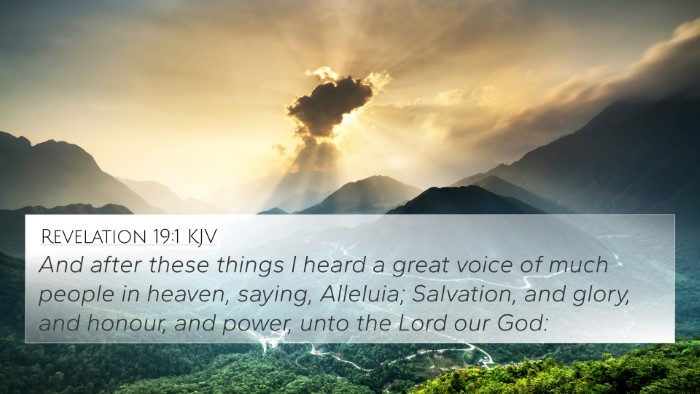Understanding Jeremiah 51:36
Verse Reference: Jeremiah 51:36
“Therefore thus saith the Lord; Behold, I will plead thy cause, and take vengeance for thee; and I will dry up her sea, and make her springs dry.”
Context and Overview
This verse is situated within a prophetic discourse concerning the judgment of Babylon. The chapter outlines God's intention to condemn Babylon for its wickedness and idolatry. The imagery of drying up the sea and springs signifies a complete desolation and barrenness that is to come upon this great city.
Summarized Verse Meaning
This passage expresses God's assurance to His people regarding the deliverance from their oppressors. He promises to advocate for them, demonstrating that divine justice will prevail over the injustices inflicted by Babylon. The phrase “I will plead thy cause” emphasizes God's role as a defender and protector, ensuring that justice will be served against those who have wronged His people.
Insights from Public Domain Commentaries
- Matthew Henry: He discusses how God will act as a judge and advocate for His people, executing vengeance on Babylon. Henry emphasizes God's omnipotence and the certainty of His promise, noting that the desolation of Babylon's rivers relates directly to its moral and spiritual corruption.
- Albert Barnes: Barnes highlights the significance of God drying up her waters as a metaphor for judgment. He argues that the physical destruction is a reflection of the moral decay of Babylon and serves as a powerful statement of God's sovereignty over nations.
- Adam Clarke: Clarke sees the plea of God as a direct intervention in favor of Israel against Babylon's tyranny. He mentions that the drying up of the sea denounces the false sources of Babylon's strength, reinforcing God's authority to bring about national destruction.
Bible Verse Cross-References
To deepen the understanding of Jeremiah 51:36, consider the following cross-referenced Bible verses:
- Isaiah 41:11-12: Highlights God’s promise to protect His people from all adversaries.
- Revelation 18:21: Prophesies the fall of Babylon, paralleling the destruction foretold in Jeremiah.
- Jeremiah 50:33-34: References God's power to plead the cause of His people against Babylon.
- Ezekiel 7:19: Discusses the theme of desolation and the loss of resources as a consequence of sin.
- Psalms 94:1: A call for God to bring justice against the wicked.
- Micah 7:9: Expresses hope in God's judgment and restoration after oppression.
- Romans 12:19: Encourages believers to leave vengeance to God, affirming the theme of divine justice.
- Lamentations 3:58: Demonstrates trust in God as the protector and justifier of His people.
- 2 Thessalonians 1:6-7: Speaks of God's justice in bringing retribution on oppressors.
- Deuteronomy 32:35: Reiterates the principle that vengeance belongs to God.
Connections Between the Verses
The thematic links between these passages illustrate a consistent biblical message about God's commitment to justice and protection. Many of these verses reflect the characteristics of God as a defender of the oppressed, connecting Old Testament themes with New Testament affirmations. For example, both Isaiah's and Revelation's references to Babylon highlight a divine pattern of judgment against evil nations, reaffirming the continuity of God's action across the scriptures.
How to Use Bible Cross-References
Using a Bible cross-reference guide can enhance your study of scripture. By identifying thematic connections between verses, you can gain deeper insights into biblical teachings and apply them to your understanding of God's nature and His relationship with humanity.
Conclusion
Jeremiah 51:36 serves as a profound reminder of God's advocacy for His people and the inevitability of His justice against oppression. Through careful cross-referencing, one can uncover a unified testimony of divine sovereignty and moral righteousness throughout the scriptures.
